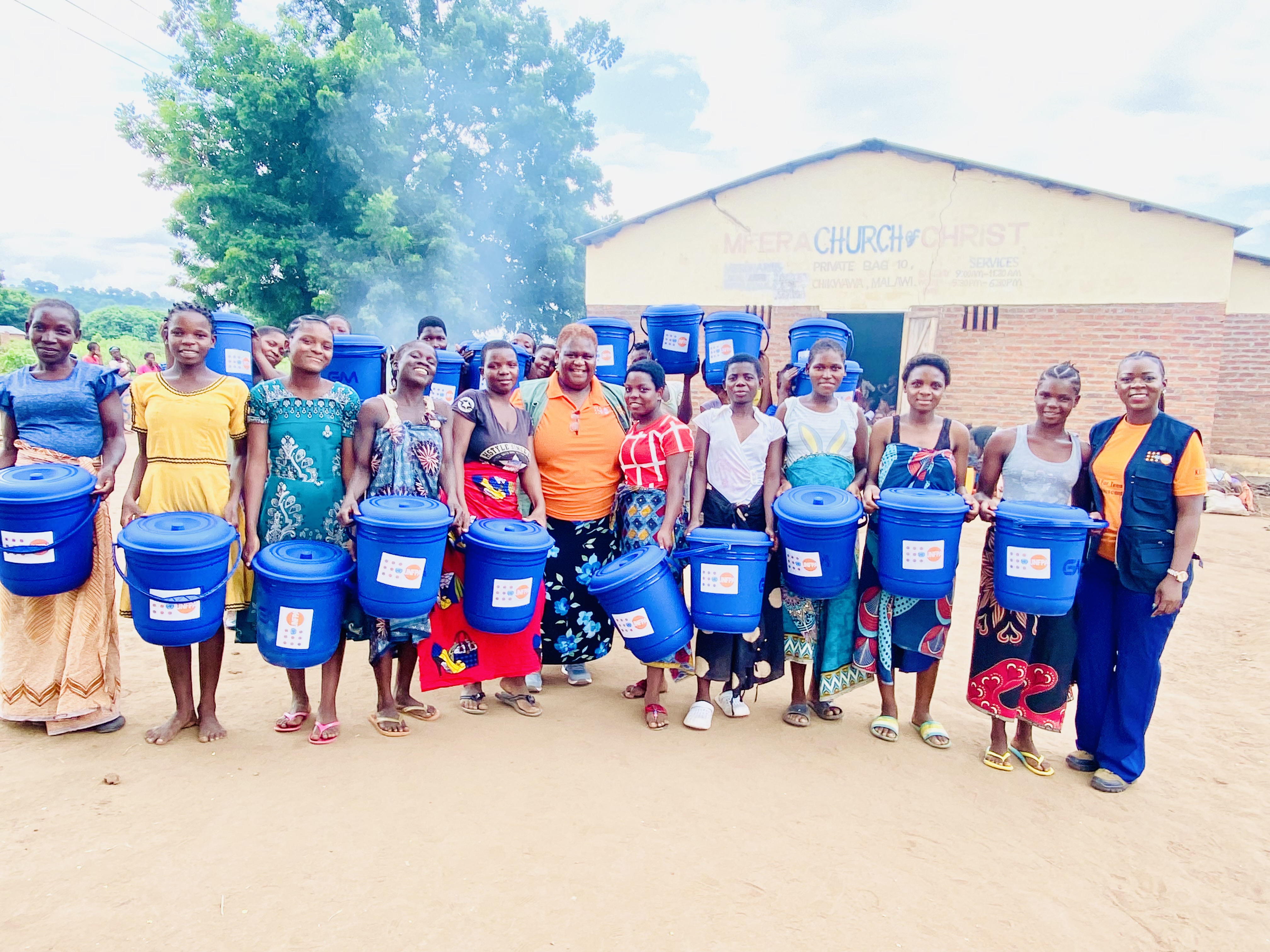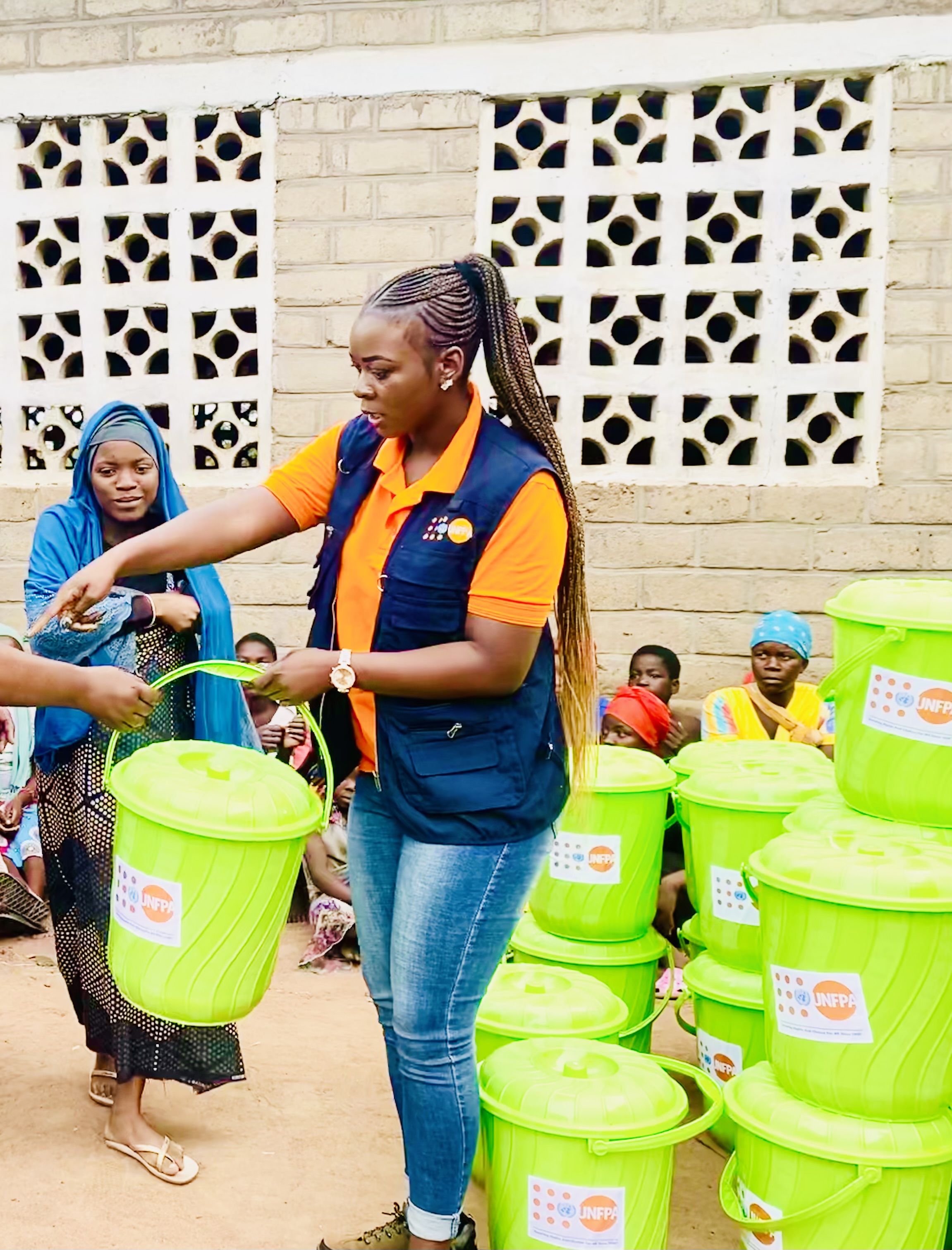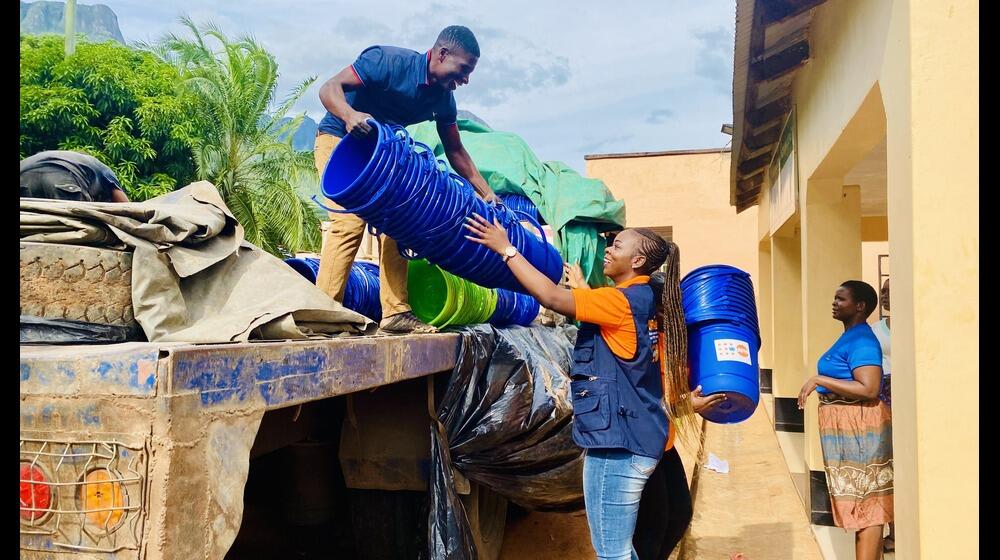Lilongwe, MALAWI - Malawi is a disaster prone country. At least, this is what I grew up knowing. I had never experienced these disasters personally. But this year, it was different. I was one of the fortunate few deployed by employer the United Nations Population Fund (UNFPA) to respond to the Cyclone Freddy disaster.
The level of destruction was heart breaking, and yet I was amazed by the sheer resilience of the affected communities. Despite the visible pain caused by the loss of loved ones, and destruction of livelihoods, the people I served during the response showed me that there is always hope even in the darkest days.
A call to serve
The decision to immerse myself in humanitarian work was born from a deep-rooted desire to make a tangible difference in the lives of those affected by crises. As a UNFPA staff member, my role extends far beyond the confines of the office. It's about being on the frontlines, and providing life saving support in to the most vulnerable, especially women and girls.
During the aftermath of Cyclone Freddy, I saw first hand the transformative power of humanitarian efforts. The immediate and coordinated response, which included providing safe spaces for women and girls, gender based violence prevention and mitigation mechanisms, providing referrals for access to integrated sexual and reproductive health and rights (SRHR) services brought hope to individuals and families who had lost everything.

As days turned into weeks, and weeks into months, the impact of our ongoing support became evident through improved access to healthcare and the restoration of dignity. The humanitarian interventions provided a lifeline for communities on the brink of despair. Access to maternal and reproductive health services was reinstated, safeguarding the well-being of both mothers and infants.
Despite all the progress we made, however, many affected areas still grapple with inadequate healthcare infrastructure, food insecurity, and limited access to clean water and sanitation. The road to recovery is long, and the scars of Cyclone Freddy are etched deeply.
Why humanitarian work matters
In a place like Malawi, where vulnerability to natural disasters is a stark reality, humanitarian work isn't just a choice - it's a moral obligation. Cyclone Freddy reminded us of this truth. The disaster exposed the fragility of lives especially in such times of uncertainty, giving so much importance to the urgency of our mission. To rebuild lives, to instil hope, and to work toward resilience communities is not only vital but a must when the world is grappling with effects of climate change.
In our resolve to rebuild lives, we had to surmount different challenges. With roads washed away, and communities floods, we had to find innovative ways to reach affected communities with life serving services. This sometimes tested our resolve. Yet, it's precisely in overcoming these challenges that we found our strength. It's a reminder that the path to meaningful change is rarely smooth, but in such situations, every step - no matter how small, counts.
No matter what
As we celebrate World Humanitarian Day, let us remember that each one of us has the power to be a beacon of hope. Humanitarian work isn't limited to those on the ground; it's a collective effort that spans borders and transcends differences. Together, we can amplify the voices of those in need, catalyzing change that echoes far beyond the immediate crisis.

In the midst of tragedy, I found hope. In the face of despair, I witnessed resilience. And in the heart of humanitarian work, I discovered the profound impact that a collective effort can achieve. Let us continue to stand united in the pursuit of a more equitable and resilient world.
By Wanangwa Rachel Mganga


